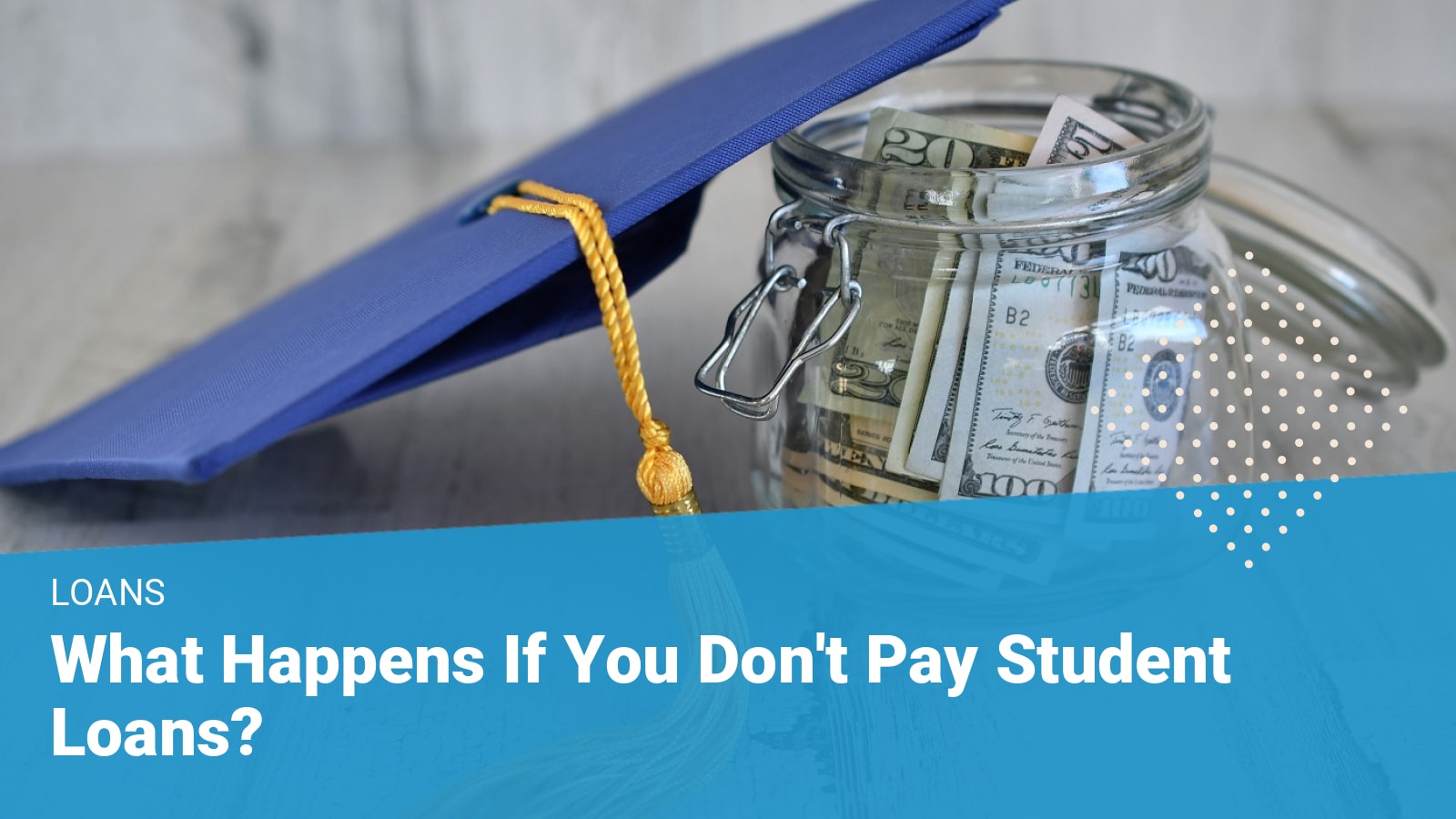Student loan debt can make a huge impact on Americans’ lives. With the total federal student loan portfolio exceeding $1.6 trillion there are more than 43 million borrowers in debt.
Many people think that not paying their student loans can have similar consequences to defaulting on a credit card or personal loan.
But in fact, it’s much worse when it comes to defaulting on student loans.
Currently, the total federal student loan portfolio totals more than $1.6 trillion with more than 43 million borrowers in debt.
Most students have federal student loans, and we know that the government has a lot of power when it comes to collecting outstanding debt.
The U.S. Department of Education (ED) offers a one-time debt relief as part of the Biden-Harris Administration’s student debt relief plan. However, as a result of a court order, debt discharge is currently paused but applications are open.
We look at what happens when you don’t pay student loans and what you can do to avoid your loan getting into default.
What Happens If You Stop Paying Student Loans?
If you stop paying on a federal student loan, the entire unpaid balance of your loan and any interest is immediately due. This is called acceleration.
Additionally, if you are in default, the government can withhold your tax refund and up to 15% of your wages. The government can also offset (keep) your Social Security payments.
If you have a private student loan and you’re in default, your lender can take legal action against you which could include wage garnishment, asset seizure, and collection calls.
90 Days Overdue
Your loan will be officially delinquent if it’s 90 days overdue. This will be reported to all the major credit bureaus and your credit score will drop.
This means you may not be able to get credit and if you are approved for a loan, it may come with higher interest rates.
A bad credit rating can also have other consequences; potential employers can check your credit rating and service providers may also deny you a service or contract if they don’t deem you as creditworthy.
Landlords may also reject your application for rental.
Your Account Goes Into Default
Your loan is in default if you haven’t made a payment in 270 days.
At this point, your entire unpaid balance becomes due immediately. The government can take aggressive collection actions against you which we outlined above.
Your student loan debt can also increase because of the late fees, additional interest, court costs, and attorney’s fees associated with default.
- Your employer may be notified: If you have a federal student loan in default, your employer may be notified and up to 15% of your wages can be withheld to repay the debt.
- Your tax refund can be seized: The government can seize your tax refund if you have a federal student loan in default. This money will go towards repaying your outstanding debt and won’t be returned to you.
Debt collectors may take action to make you pay, but they have to operate within the rules of the Fair Debt Collection Practices Act (FDCPA).
Know the Consequences of Defaulting on Your Student Loan
If you default on your student loan, the consequences can be severe. Your credit score will suffer, making it difficult to get a loan for a car or a home.
You may also be subject to wage garnishment, meaning that your employer will deduct money from your paycheck to go toward your student loan debt.
In addition, you will owe late fees and collection costs, which can add up quickly. If you are unable to repay your student loan, you may end up having to declare bankruptcy.
Federal Resources to Help
If you’re struggling to pay your student loans, you’re not alone as millions of Americans are in the same boat.
The good news is that there are federal resources available to help.
The first step is to contact your loan servicer and explain your situation. They may be able to work with you on a payment plan or offer other options.
There are also a number of government programs available to help borrowers who are struggling. For example, the Income-Based Repayment Plan allows borrowers to make monthly payments based on their income and family size.
There’s also the Public Service Loan Forgiveness Program (PSLF), which forgives any remaining balance on your loans after 10 years of payments if you work in a public service job.
You can apply for the PSLF program by using the PSLF tool and printing the form. Make sure you sign it then once complete, you can send it to MOHELA.
Conclusion
Student loan debt is a serious matter, but it’s important to understand that missing payments on a student loan can have serious consequences.
The best thing to do is to follow the advice of experts and make sure that you’re prepared for what comes with taking out a student loan.
Having a plan for repayment will help you avoid the serious consequences of defaulting on a loan.
FAQs
Do student loans go away after seven years?
Yes, student loans typically are removed from your credit profile after seven years.
Can your property be seized if you don’t pay your student loan?
No, your property can’t be seized for unpaid student loans.
Sources
- PSLF Toolaccessed on November 8, 2022
- The White Houseaccessed on November 8, 2022
- Financial Counseling Association of Americaaccessed on November 8, 2022
- Federal Trade Comissionaccessed on November 8, 2022
- U.S. Department of Educationaccessed on November 8, 2022
- Education Data Initiativeaccessed on November 8, 2022


